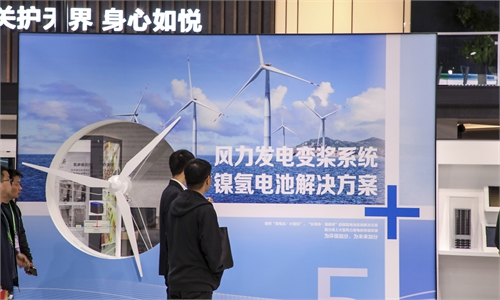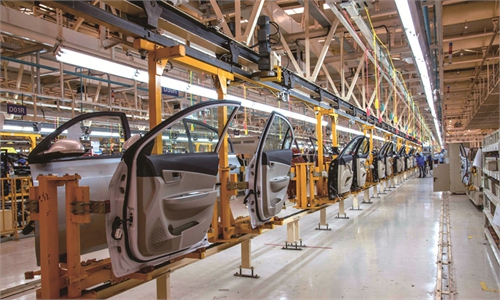
Illustration: Chen Xia/Global Times
A safety test scandal at several top Japanese automakers has generated turbulence. In a fully competitive market, the effects of the scandal have quickly expanded. The case has set off an alarm bell for automakers, that any mistake will be costly amid fierce competition.Toyota Motor and four other Japanese automakers have admitted to the falsification of testing data or improper testing, according to the Japan Times. Toyota and Mazda have reportedly suspended shipments of some vehicles after Japanese officials found irregularities in their certification applications.
This may not be the entire damage. The scandal has resulted in heated discussion in China, the world's largest auto market. This means these companies' reputations and sales in the Chinese market may be negatively affected, especially in the short term.
Some even speculate that the scandal will become a waterloo for Japanese automakers' businesses in China. In our opinion, the consequences, at least so far, have been exaggerated. Japanese automakers have always been important participants in the growing Chinese auto market. For a long time to come, China is expected to remain an important overseas market for Japanese automakers.
What is needed for Japanese automakers is to take practical action to dispel concerns and restore the confidence of Chinese consumers. Companies involved in the scandal need to engage in serious reflection. We sincerely hope that the correct measures can be taken to minimize losses and promote healthier development of the industries in both countries.
The global auto market is experiencing intensifying competition amid a radical industrial transformation, creating both challenges and opportunities for auto industries worldwide.
At this pivotal moment, the Japanese government is increasing supervision of Japanese vehicle companies, raising questions about whether this is a response to the escalating competition.
However, one thing is clear - the Japanese government should and will continue to prioritize and support the development of the Japanese auto industry, regardless of changes in the external competitive environment and industrial landscape.
The Japanese government has announced its digital strategy for the auto industry, with the aim of competing with the US and China, as reported by Kyodo News on May 21. The government's goal is to promote the development of software defined vehicles (SDVs), and to increase the market share of Japanese carmakers to 30 percent of global sales by 2030.
The ambitious digitalization plan and stricter regulations in Japan are clearly necessary if the traditional automotive powerhouse wants to maintain its competitive position in the rapidly evolving global industry driven by new technologies.
Chinese and US auto companies like BYD and Tesla have started selling SDVs, while Japanese manufacturers have been relatively slow to act. Companies like Toyota and Honda originally planned to fully launch SDVs after 2025, according to media reports.
In the past few years, during the golden era of the rapid development of EVs, some traditional strong Japanese car companies initially showed reluctance to embrace this new trend.
With China's and other countries' car companies making significant strides in the EV sector, China surpassed Japan last year to become the world's largest car exporter. Japanese car companies are now beginning to embrace the trends of electrification and digitalization.
In order to accelerate the progress of Japanese auto manufacturers in electrification and digitalization, the Japanese government is supporting Japanese auto manufacturers to collaborate on joint research and development in related areas.
China will continue to be an important market for Japanese car companies. The Chinese market is huge, fast-growing and promising. There is great cooperation potential between China and Japan in the EV industry.
Over the past few decades, Japanese vehicle manufacturers have established a huge supplier system in China, with media reports indicating that there are more than 1,000 enterprises in China participating the Japanese car industrial chain.
The long-established industry chain is a strength of the Japanese car industry. Japanese car industry chain suppliers have a strong foundation in materials, equipment and components due to the long-term accumulation of basic research and technology. There is significant complementarity between China and Japan in these areas, providing ample room for cooperation.
Some countries are promoting protectionism and pushing for decoupling in new-energy industries including EVs, but in reality, cooperation is essential for mutual development. It is crucial for China and Japan to cooperate in the development of the auto industry, as there are many areas where both sides can achieve win-win outcomes.



